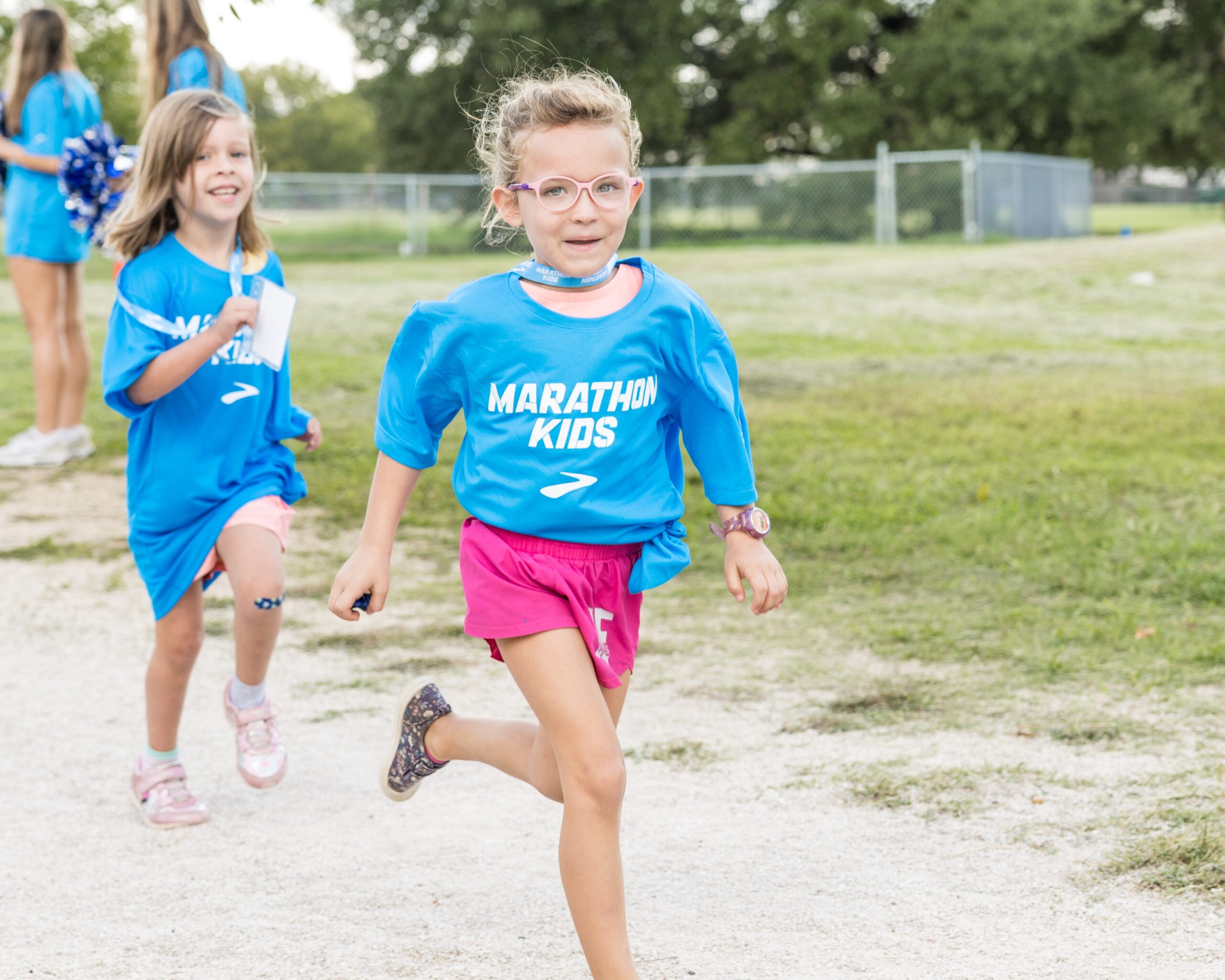
Running on research
Marathon Kids is one of the only evidence-based youth physical activity programs in the United States that is proven to help increase a child’s daily moderate to vigorous activity.
Research-Proven Methods
Review our unparalleled collection of evidence-based programming proven to get kids moving. All studies conducted by the Michael & Susan Dell Center for Healthy Living at the University of Texas School of Public Health – Austin.

Students in Marathon Kids schools showed significantly higher outcomes on key measures such as increased physical activity and athletic self-perception. BIPOC students reported the highest program satisfaction, which is important given research that found athletic identity to be positively associated with physical activity in elementary and middle school children.

Phase II: Promoting Physical Activity Through Marathon Kids
A high percentage of Marathon Kids schools incorporated more time during the school day for walking and running, with significant differences found between Marathon Kids and control schools.

Evaluation of Strategies for Increasing Parent Involvement
Additional support provided to the two enhanced parent communication conditions resulted in increased parent exposure of the Marathon Kids program as well as enhanced program outcomes related to student tracking of miles and attendance at Marathon Kids events.

Strengths and lessons learned documented in this study provide a strong foundation for the overall approach of Marathon Kids. Engaging and co-learning with the vibrant Marathon Kids’ community-produced best practices for advancing Marathon Kids’ mission of providing a path for healthy youth development through running.
Published by Translational Journal of the American College of Sports Medicine
Evidence-Based Pillars
Six evidence-based pillars to long-term healthy behavior adoption

Goal Setting
Kids develop a growth mindset setting big and small goals alike.

Social Support
Moving together is more enjoyable when you feel the support of others.
Tracking
Logging miles and measuring progress keeps kids motivated.

Celebrating
Big cheers and high-fives go a long way to foster long-term behavior adoption.

Modeling the Way
Role models inspire kids to build new, healthy habits in their lives.

Rewarding
Consistent, positive recognition fuels kids to keep striving for the next milestone.
Together, we can help every child take their first step toward a healthier future.
Marathon Kids is a nonprofit organization on a mission to get kids moving.
To learn more, please visit our Mission page.